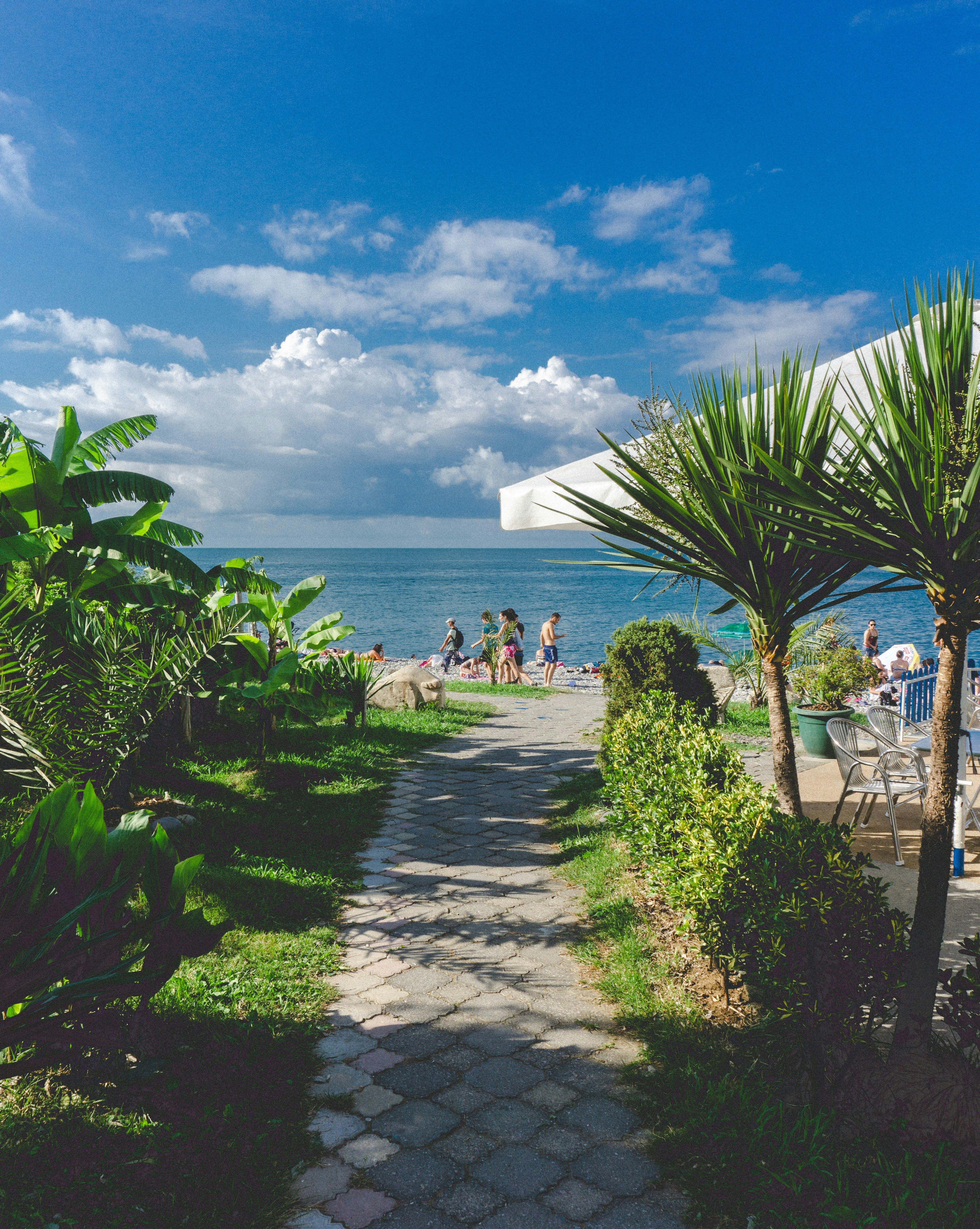Sustainable Slumber and Green Exploration in Germany's Heuhotels
Eco-conscious Travel in Germany: Highlighting the Top Sustainable Journey Programs Nationwide
In an unexpected turn of events, I found myself bedding down in a farmer's barn during my cycling journey across Lower Saxony, Germany. Despite the peculiar setting, this was far from an ordinary night's rest—it was part of the country's growing trend of eco-friendly accommodations, known as heuhotels.
Farmer Borchers, with his pragmatic welcome and precautionary advice about his singing song-thrush, initiated my immersion into this unique style of lodging. Though other heuhotels I stayed at replaced hay with straw beds to cater to allergies, Borchers' barn was decidedly authentic.
The unconventional lodging setup was surprisingly comfortable, with three such establishments offering brilliant warmth and sustainability throughout my stay. A brief moment of anxiety on my second night was caused by an unexpected noise, later identified as the automatic cattle feeder, but this proved to be an isolated incident.
Germany's dedication to sustainability reflects in its national policies, with the nation boasting a robust green agenda. The Green Party has been instrumental in the country's recent coalition government, although efforts to mandate total household conversion to heat pumps have faced resistance as the upcoming February election approaches.
A recurring theme in Germany's green initiatives involves minimal waste and maximum recycling. Bottle deposits remain common, and households pay for general waste by the kilo, while recyclable items continue to be free. A notable shift away from nuclear power has also been made, with ambitious goals set for renewable energy sources—80% of all electricity is slated to come from renewables by 2030, with this figure rising to 100% by 2035.
Sustainable tourism is a burgeoning sector in the country, offering travelers a taste of eco-conscious experiences even if they bypass the haybarns.
Sustainable Travel Initiatives
Sustainable Transport
The introduction of the Deutschland Ticket, a monthly pass granting unlimited access to regional public transport for €58, has encouraged a shift towards greener transportation options. Germany's comprehensive rail network offers numerous regional deals, and 24 areas provide free public transport to overnight guests as part of DB's Destination Nature program.
Green Accommodations
Many hotels in Germany are undergoing eco-certification processes, with Bio Hotels leading the charge. These establishments prioritize organic food, 100% green electricity, natural bathroom cosmetics, and heat pumps for heating. Other eco-authenticators to look for include the Biosphere, Certified Green Hotel, DEHOGA Environmental Check, GreenSign, and Green Key labels.
The Recycling of Industrial Buildings
Germany has paved the way for big-budget flagship projects converting former industrial sites into new purposes, such as the Zeche Zollverein coal mine and coking plant in Essen, now a UNESCO-recognized museum and leisure complex.
Cycling Holidays
Germany, the birthplace of the motorway, is also extremely cyclist-friendly, with cycleways alongside many major roads and local bus services equipped with cycle racks. Long-distance cycle routes like those along the Rhine, the Elbe, and the Danube rivers attract tourists.
Boat and Bike Cruising
River cruising complements cycling holidays well, particularly on the Mosel and the Rhine. The benefit lies in the boats that travel with you, allowing you to disembark at prime spots and continue your journey via bicycle.
Case Study - Freiburg: Europe's 'Solar City'
In the foothills of the Black Forest, the city of Freiburg stands out as a trailblazer in Germany's emission reduction efforts. With 70% of the population living within 500 meters of a tram stop and a 400-kilometer cycle network, Freiburg is promoting alternative modes of transport to reduce car reliance.
Freiburg's commitment to renewable energy is evident in the Vauban district, which now relies heavily on solar power. The town hall generates more power than it consumes, feeding the excess into the grid. This penchant for solar power has fostered an eco-consultancy sector, employing over 12,000 people.
Case Study - Hamburg: Greening the Skies
The Reverb by Hard Rock hotel, built atop a Second World War bunker in Hamburg, exemplifies the city's green revolution. The roof extension includes 4,700 trees and shrubs, as well as a rooftop garden accessible via a 'mountain path.' This development is aligned with Hamburg's goal to install 100 hectares of green roof space in the metropolitan area by early 2025.
Schmilka: Eco-Village Extraordinaire
The picturesque hamlet of Schmilka, wedged between the Elbe river's east bank and the Czech border, showcases Sven-Erik Hitzer's sustainable retreat vision. Visitors may arrive by paddlesteamer, train, or footprint-conscious bus routes instead of cars. The hamlet's restaurants, bakery, brewery, and accommodation prioritize sustainability, contributing to a holistic eco-conscious experience.
In the realm of sustainable living, one might find an intriguing fusion of home-and-garden and travel lifetime experiences, as demonstrated by Germany's eco-friendly accommodations, such as heuhotels, that promote sustainable travel. Furthermore, as the tourism sector evolves in Germany, it offers opportunities for travelers to embrace a more sustainable-living lifestyle, even during their exploration of new destinations.




